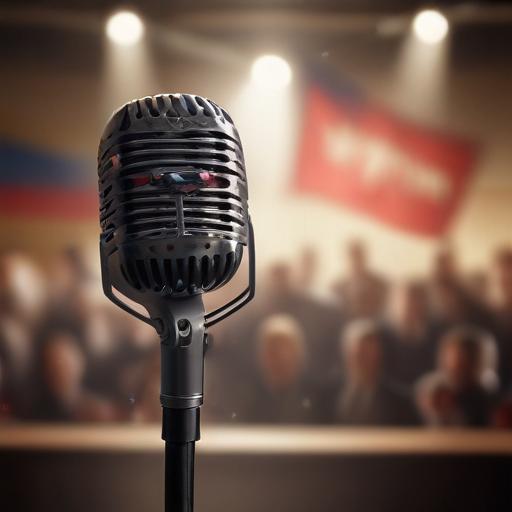The renowned Croatian singer, Marko Perkovic, also known as Thompson, stirred controversy during a recent concert in Sinj, Croatia, where he addressed critics of his nationalistic music. During his performance, he defended his song “Çavoglave,” which has historically drawn criticism, stating, “the song is free even with a court decision,” and emphasized the importance of freedom of expression—arguing that it is a freedom for which Croatian defenders fought and died.
Perkovic’s comments reflect his staunch nationalism as he insisted that those living in Croatia should respect the symbols of Croatian defenders, making a pointed remark that “Yugoslavia is dead.” The audience responded with enthusiastic support, reinforcing his position among nationalists.
He drew significant attention last week with a performance in Zagreb that attracted over half a million attendees. His songs, including one that opens with “For the Homeland – Ready,” have been labeled controversial due to their historical associations with nationalist movements in Croatia during the 1990s war. Perkovic believes that his music represents the conclusion of a difficult era linked to the country’s struggle for independence from the former Yugoslavia.
This nationalist sentiment persists, lingering decades after the conflict that saw many atrocities, particularly those committed by the Ustasa regime, which resulted in the deaths of numerous Serbs, Jews, and Roma in concentration camps. While his popularity reveals a strong undercurrent of nationalism in Croatia today, it faces significant pushback from neighboring countries. Serbian President Aleksandar Vučić has criticized his concerts, framing them as supportive of Nazism, while former Serbian President Boris Tadić condemned them for glorifying violence against the Serbian people.
Despite the divisive nature of his music and its implications, Perkovic’s concerts continue to resonate with a significant portion of the Croatian population, marking a complex intersection of national identity and historical memory in the region.
The ongoing dialogue surrounding Thompson’s music and performances reflects the ongoing challenges of post-war reconciliation in the Balkans. As Croatia navigates its identity in the modern EU context, figures like Perkovic underline the tensions that continue to shape the country’s narrative.
